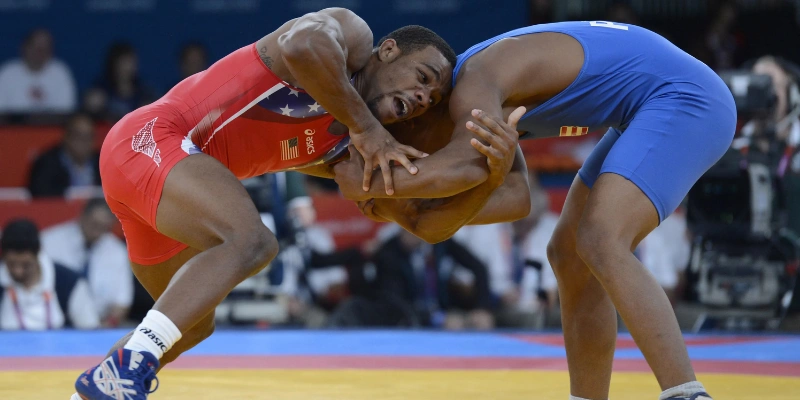Why wrestling should be in the spotlight
The Wrestling Olympics are more than just a show of strength – it’s one of the oldest and most respected traditions in sports history. Beginning with the ancient Olympic Games of 708 BC, wrestling was a test of both body and mind, where strategy mattered as much as brute strength.
Fast forward into the modern era, wrestling remains a cornerstone of the Olympic Games, attracting competitors from all corners of the globe. Very few sports hold such heritage or cultural depth. Wrestling connects generations – from historical legends to today’s medal winners – and continues to evolve while maintaining its ancient roots.
This blog post explores the incredible journey of the Wrestling Olympics, including spectacular victories, controversial decisions, and awe-inspiring comebacks. It’s a sport where seconds define fate, and every bout tells a story of perseverance, pride, and passion. That’s why wrestling is still in the spotlight – and always will be.
Origins of Wrestling in the Olympic Games
Olympic wrestling has its roots in ancient Greece, where wrestling was one of the most prestigious events in the original Olympic Games, which began in 708 B.C. It symbolized not only physical strength, but also wisdom, discipline, and tactical skill – qualities that made it a cornerstone of ancient athletic culture.
When the modern Olympic Games were revived in 1896, wrestling was one of the few sports included from the start, a testament to its timeless charm. Greco-Roman wrestling was included in the first modern Olympics, while freestyle wrestling was added in 1904, further enriching the sport’s Olympic presence.
Over the years, the Wrestling Olympics have seen many transformational milestones – from rule changes that increased fairness and action, to moments of political controversy, and incredible displays of athleticism. Despite it all, wrestling has held its own as a test of will, strength, and national pride, earning its reputation as one of the most enduring sports in Olympic history.
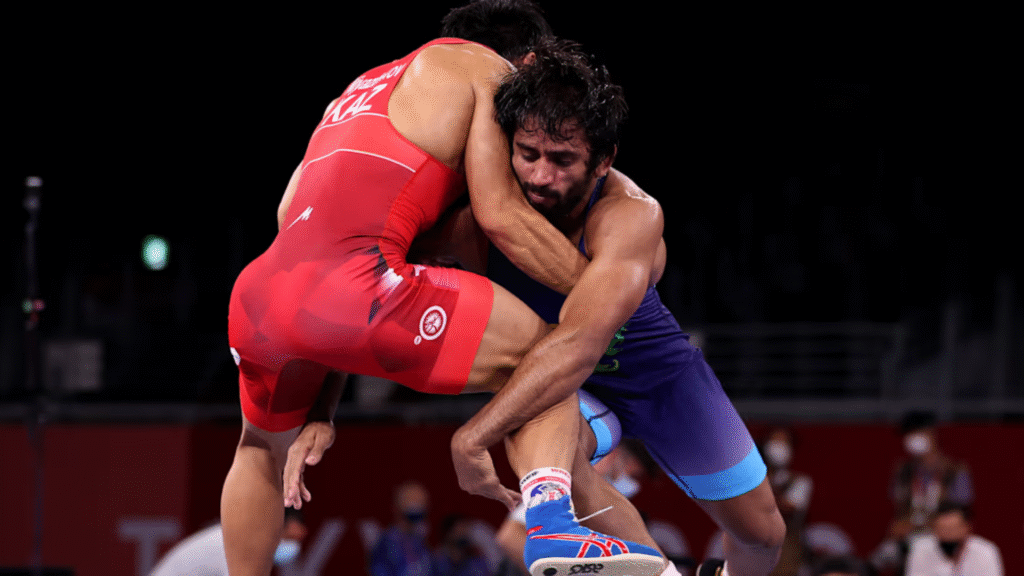
Golden moments and historic victories
The Wrestling Olympics are defined by staggering achievements and powerful displays of resilience and dominance. From the great Alexander Karelin, who remained undefeated for 13 years and won three Olympic gold medals, to Japan’s Kaori Icho, the first woman to win gold at four consecutive Olympics, these icons have etched their names in Olympic history.
Unforgettable gold medal matches – such as razor-thin victories and dramatic last-second upsets – have thrilled fans and showcased the intensity of the sport. These moments reflect not only individual triumphs but also national pride, as countries like Russia, the USA, and Japan have built wrestling dynasties over the decades.
Each medal won at the Wrestling Olympics tells a story of sacrifice, tradition, and incredible athleticism, creating a legacy that continues to inspire new generations of athletes around the world.
Major Controversies in Olympic Wrestling
The wrestling Olympics have also seen many heated controversies and shocking moments. One of the biggest sources of tension has been scoring controversies, where spur-of-the-moment decisions and subjective scoring have caused outrage among athletes and fans. Controversial decisions have doomed medal hopes, often sparking protests on the mat and fierce debate off it.
The most dramatic moment in modern wrestling Olympic history came in 2013, when the International Olympic Committee (IOC) made the shocking decision to remove wrestling from the Olympic program. The move sparked global outrage from athletes, federations, and fans, uniting nations in an unprecedented campaign to reinstate the ancient sport – a campaign that was ultimately successful.
Additionally, wrestling has had to deal with allegations of corruption, including concerns over biased judging and opaque governance. In response, United World Wrestling implemented sweeping reforms aimed at restoring credibility, transparency, and fairness to the sport.
Despite these setbacks, Olympic Wrestling continues to grow, proving the sport’s enduring legacy and its ability to overcome internal and external challenges.
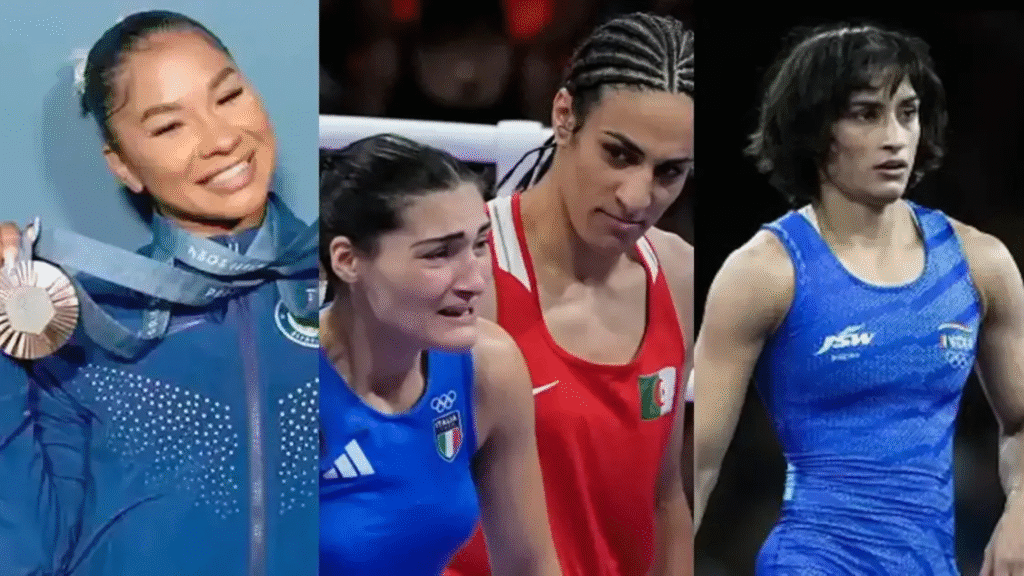
Comebacks that stunned the world
The wrestling Olympics have seen some of the most awe-inspiring comeback stories in sports history. Perhaps the greatest comeback was not made by an athlete, but by the sport itself – in 2013, the IOC stunned the world by removing wrestling from the Olympic program. But just months later, thanks to a massive global campaign and overwhelming support, wrestling was re-included for the 2020 Tokyo Olympics and beyond, proving the sport’s unbreakable spirit and historical significance.
On the mat, the comebacks have been just as dramatic. Jordan Burroughs, an iconic American wrestler, made an emotional return to Olympic competition after a string of setbacks, continuing to inspire with her grit and passion. Meanwhile, veterans like Saori Yoshida have exemplified endurance and consistency, returning to dominate the podium time and again.
The wrestling Olympics are also known for their underdog heroes – athletes who weren’t medal favorites but defied expectations. These surprising victories thrilled fans, reminded the world of wrestling’s unpredictability, and deepened the sport’s emotional legacy.
Evolving Rules and Styles at the Wrestling Olympics
The Wrestling Olympics have undergone major changes over the years, evolving into a fierce and globally respected sport. A defining characteristic is the difference between Greco-Roman and freestyle wrestling. While Greco-Roman restricts holds to above the waist, freestyle allows for full-body strikes, allowing for a wider range of tactics and techniques.
Changes to the scoring system and match duration have made the sport more dynamic and spectator-friendly. From simplified point structures to the introduction of video review, every adjustment is aimed at increasing fairness and excitement. Judges are now held to stricter standards, improving accuracy and transparency.
These evolving rules have shaped the competitive landscape of the Wrestling Olympics, requiring athletes to constantly adapt. The result? Faster-paced matches, strategic variety, and a sport that attracts both traditional fans and new Olympic viewers.
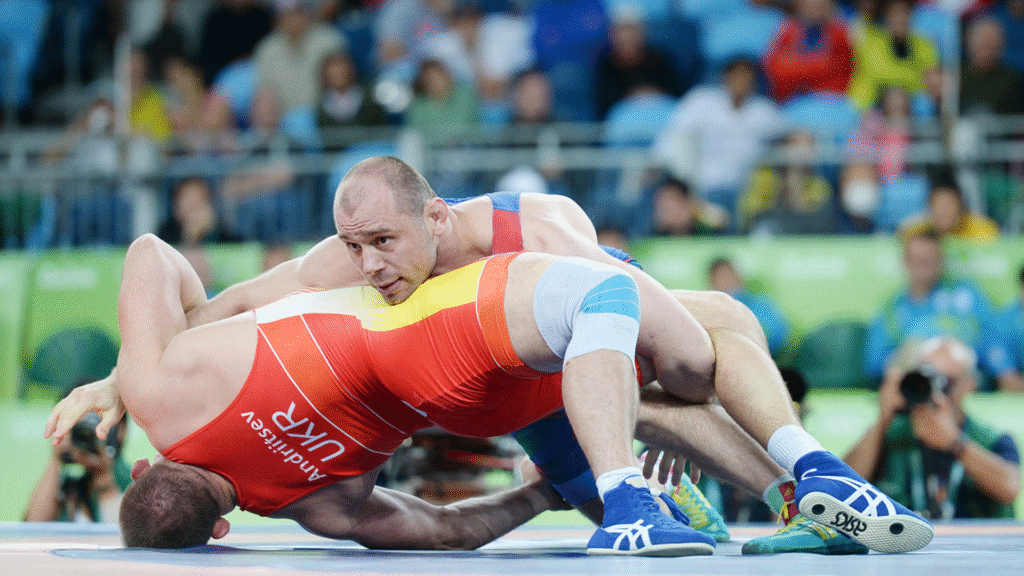
Wrestling Olympics in recent editions
The Wrestling Olympics in recent editions have delivered unforgettable drama, fierce rivalries, and star-studded exhibitions. At Rio 2016, a legend like Kaori Icho made history by winning her fourth consecutive gold, while Cuban veteran Mijaine Lopez continued to dominate the Greco-Roman scene.
Tokyo 2020 brought a new wave of talent to the fore. US wrestler Tamira Mensah-Stock’s emotional gold and Gable Steveson’s last-second comeback in the final captured hearts around the world. The event also highlighted wrestling’s global reach, with rising stars from countries like India, Iran, and Japan rising to prominence.
As anticipation grows for Paris 2024, fans are eager to see the next chapter of the wrestling Olympic saga – where legends will defend their legacies and newcomers will seek glory on the world’s grandest stage.
The Global Impact of Olympic Wrestling
Olympic wrestling represents more than just athletic competition – they are a powerful symbol of discipline, heritage, and national pride. Rooted in centuries-old traditions, Olympic wrestling continues to instill core values such as resilience and respect in athletes around the world.
As the popularity of Olympic Wrestling continues to grow, the sport has gained popularity in emerging nations, with countries such as India, Iran, and Uzbekistan producing world-class competitors. Wrestling has become a source of identity and pride, uniting communities around the achievements of their athletes on a global stage.
The Olympic spotlight has played a key role in keeping wrestling relevant, inspiring youth participation, and preserving cultural traditions. Through global broadcasts and social media, Olympic Wrestling is now reaching millions of people, proving that this ancient sport continues to thrive in the modern era.
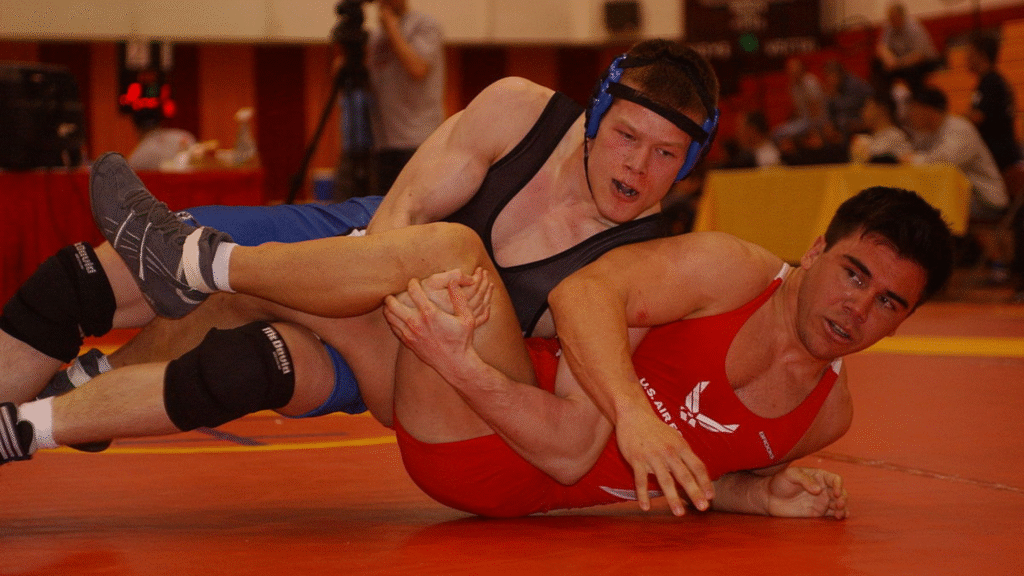
Conclusion: The Legacy of Olympic Wrestling
Olympic wrestling is a testament to the enduring power of the sport – a saga defined by incredible victories, dramatic controversies, and unforgettable comebacks. From ancient arenas to modern Olympic stadiums, wrestling has showcased not only physical strength but also the indomitable human spirit.
Each chapter of Olympic wrestling history – whether it’s a legendary gold medal match, a disputed decision, or an inspiring comeback – adds depth to the sport’s rich legacy. These moments shape its global identity, inspire future generations, and remind the world of wrestling’s timeless relevance.
What Olympic wrestling moment inspired you the most? Share in the comments below and join the conversation celebrating the legacy of the Wrestling Olympics!
Read about Sports with Duniya Sports

